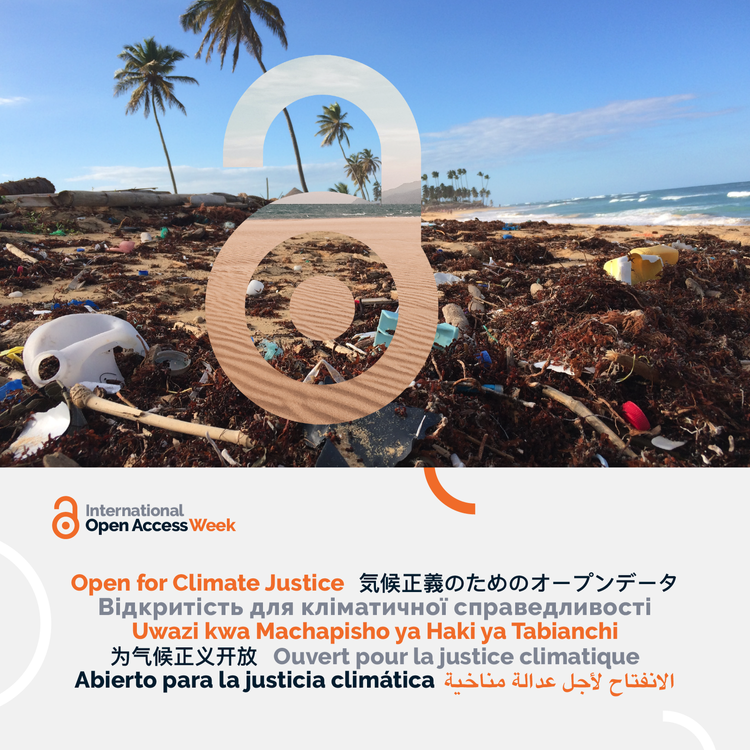While the previously posted bibliography of climate change-related articles highlighted only very recent items, it still roughly mirrors patterns of open access publishing by authors based in the Global South that I have reported on in earlier analyses: The two most commonly selected vehicles tend to be 1) open access journals that do not charge a publication fee (APC) ("diamond journals"); and 2) APC-based "gold" OA journals. Whereas the two least common OA options for GS authors are: 1) publishing in hybrid journals, i.e., subscription-based journals that will make articles open access upon payment of a (usually much higher) publication fee; and green OA, i.e., depositing postprint versions of articles that have been accepted by hybrid journals in an institutional or subject repository (also referred to as "self-archiving").
Actually, I was not able to locate any examples of green OA to include in the climate change bibliography. This is likely due in part to the very narrow date range I used (2021-2022)! But low counts of green OA are frequently observed for most authors, not just those based in the Global South.
So the message that I hope to impart during this year's climate change-focused Open Access Week is -- go Green! Why? It incurs no costs to the author or reader, it complies with funder mandates, it allows authors to continue publishing articles in conventional journals of their choice, and it ensures long-term preservation of and access to an author's research.
While many of the biggest journal publishers have imposed restrictions on where and when a postprint can be self-archived, there are a growing number of publishers who have eliminated these restrictions and allow postprints to be deposited in a variety of places immediately.
One of these publishers is SAGE. The two following climate change-related articles were recently published in SAGE journals by authors based in the Global South:
"Analysing the Legal Rights of the Climate Refugees during COVID-19 Pandemic in India: Challenges to International Law," Asian Journal of Legal Education, vol. 9, no. 2 (2022)
"Relocation, Climate Change and Finding a Place of Belonging for Rohingya Refugees," Journal of Peacebuilding & Development, OnlineFirst, 5 Oct. 2022
According to SAGE's self-archiving policy, the authors of these articles can proceed with "posting a downloadable copy [of the author accepted manuscript] on any website, saving a copy in any repository or network, sharing a copy through any social media channel, and distributing print or electronic copies...any time after your paper is accepted and in any format." The policy also provides additional details on the conditions for posting.
Typically, academic authors should first check with their institutions to see if a repository is available to them. Alternatively, authors without access to an institutional repository may opt for a subject-related one like SSRN or a multidisciplinary one like Zenodo.
There is always an initial learning curve with new endeavors! But going Green is a relatively straightforward process, and it helps to ensure that a broader spectrum of voices reach a larger audience.
Next steps: Check out this post for more info on how to go Green, and/or visit my Forced Migration & Open Access blog to learn about open access more generally.

No comments:
Post a Comment